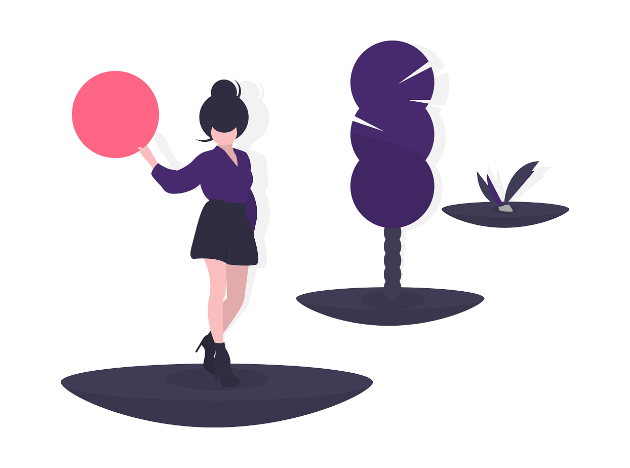8th March 2019

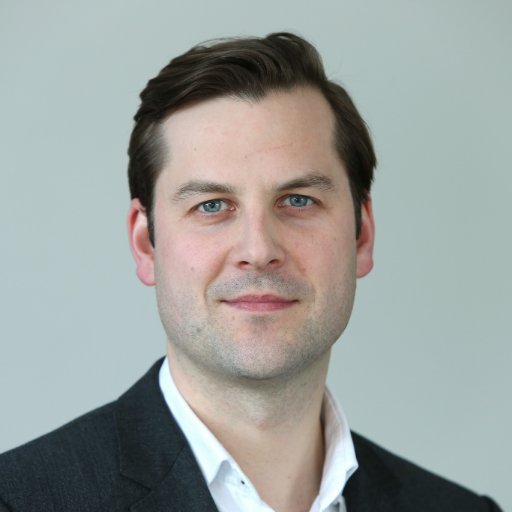
STEM: Who says it’s not for girls?
Jan-Philipp Beck was formerly EIT Health’s CEO, before Jean-Marc Bourez was appointed.
Beck is passionate about transforming healthcare in Europe through partnership and innovation. As CEO, his overarching objective was to support EIT Health’s vision of connecting the healthcare needs of European citizens with policy makers and its incredible network of over 140 members to deliver innovative healthcare solutions that can positively transform healthcare outcomes across Europe.
This year, the theme for International Women’s Day is “Balance for Better”, which is about building a more gender balanced world.
Some may question whether, as we sit here in 2019, events aimed at female empowerment are necessary, or whether we have passed the point in time where such events have relevance – particularly in most of Europe where diversity may be more developed. When we look at science, technology, engineering and mathematics (STEM), it is clear that while we have made meaningful progress, there is certainly more work to be done to support women and girls globally. Latest data show that less than a third of the world’s researchers are female, and the issue is confounded by the fact that we still see a lower rate of participation from women in STEM higher education subjects.

Here at EIT Health, we are a young organisation – we are now in our fourth year. From the very beginning, our organisation has been led by a team of strong women and men from many different backgrounds and cultures, and so you could say that diversity has been woven into the very fabric of EIT Health. Since we have not had to break down historical barriers or habits that may slow an organisation’s ability to achieve diversity, I could not even imagine how EIT Health would look without it – certainly, I think it would stunt the innovation that we see flourishing every day throughout our network.
This is why we feel it is important to support and promote opportunities for women to bring their talents to the health innovation sector, and we are proud that WE Health, our programme aiming to enhance the participation of women in health innovation and entrepreneurship, is now in its second year. We offer many opportunities to women as part of this programme including networking, training and mentorship. In fact, you can register right now for our free-of-charge module ‘Empowering women in health innovation: unlocking your innovative potential’, taking place in April 2019.
I am proud to be part of an organisation that has welcomed and encouraged ambitious and talented people from all walks of life to work towards a shared goal of improving lives in Europe. And now, in celebration of International Women’s Day, I would like to highlight some of the female leaders within the EIT Health community who have inspired me (it was very difficult to choose only four, there are so many):
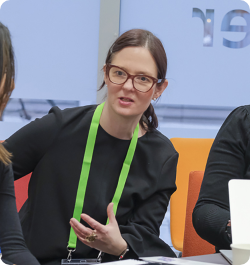
Ursula Mühle, EIT Health Director of Education.
As a higher education enthusiast with over a decade experience in science, research and education management of (international) multi-stakeholder formats at some of the world’s leading academic institutions, she is eager to actively contribute to the advancement of innovative research and education formats in a multi-national environment for laying out the seeds for sustainable innovations.
Q: What did you want to be when you were younger?
A: I always wanted to be a journalist, and I was for a while early on in my career. I wanted to give a voice to the voiceless, and I was passionate about topics that highlighted issues with social politics, health and education. After a while, I began to feel the urge to not only talk about the change needed, but to be part of enabling it. And so, I moved into education where I felt that I could make a tangible difference.
Q: Why did you choose health?
A: Health is a universal right – everyone deserves to receive good healthcare. We are lucky to already have a very high standard of healthcare in Europe and I have been grateful to have benefited from it when needed. But we must not take it for granted, we must to work to maintain it as well as advance it.
Q: Have you faced challenges in your career as a female leader?
A: One of the experiences I have had, particularly earlier on in my career, has been in those around me failing to see me as a decision maker. It has, at times, been assumed that I am a student, intern or there in a secretarial role rather than in a leadership role (perhaps not helped by my small height etc). These assumptions are hangovers from a time when there were very few women in leadership roles, but we must also recognise it as some level of ignorance. For me, I overcame this by being persistent – I stood my ground and corrected the assumptions straight away.

Q: Why are there fewer women in science-based higher education and leadership roles?
A: We see female participation drop drastically when we look at higher education, particularly post-doc. This level of education takes a long time, and it often happens at a time when women are also thinking about whether they would like to have a family. They will be considering how they make the various parts of their life work together in the future. Although we are seeing a shift in how we define family care-givers in many countries, it is still true that it is often a female responsibility. When it comes to career development, this has a knock-on effect as women may have taken time out or may look to work part-time to start a family and care for them. It is difficult to then catch up and it is a sad fact that, even today, having children affects the career trajectory of women more so than men.
Q: What does EIT Health Campus offer to support this need?
A: For anyone, man or woman, to succeed, they cannot do it alone. You need a network, you need mentors and you need support. This is exactly what EIT Health offers in our programmes. WE Health (our programmed aimed at empowering female entrepreneurship in health innovation) was set up in 2017 to give women a network and opportunities to gain support. I have also made a point, for many years, of ensuring gender diversity in decision making within the education part of our organisation (Campus) – for example, our external hearing evaluators who help us to assess proposals for funding. For me, this is important in breaking down existing perception barriers for women.

Q: What support do women need in health innovation education and career development?
A: We must redefine how work-life balance is structured to remove the disadvantages faced by both women and men if they choose to have an education or career alongside a family. The traditional idea of a 9-5 working day simply doesn’t work for everyone. We must ensure diversity at all levels of decision making to even out the playing field. We are naturally wired to prefer those who are like us – we understand them, we tend to agree with their values and views, we respond to their method of communicating. If there is an all-male decision board for example, whether conscious or unconscious, there is a male advantage. Finally, we must move away from old fashioned perceptions of how women should act in business. Historically, I have found that ambitious and highly driven women can be considered as aggressive and this is unacceptable. It is no wonder that women are often overly critical of themselves.
Q: What makes you proud?
A: When I see that I have helped a student or a young professional to drive change. This includes the work that I do here at EIT Health, but also in my personal endeavours. I am also involved in Zonta International, a global women’s rights organisation. As part of my work with Zonta, I helped to set up an awards scholarship scheme for young women in government. I am still in contact with previous winners, and it fantastic to see how we have helped them to build something.
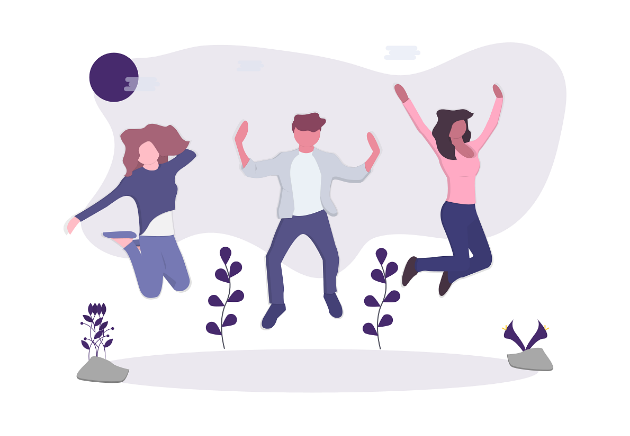
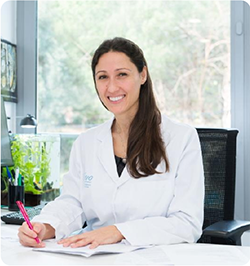
Dr. Laura Soucek is founder and CEO of Peptomyc.
Peptomyc is a cancer treatment start-up supported by EIT Health. The treatment, which is based on her own innovative research, is scheduled for clinical trials that could mean the innovation will soon be available on the market. She raised €4 million in venture capital from within the EIT Health community and mentors women entrepreneurs under EIT Health’s WE Health programme.
Q: Tell us about your general background – what were your aspirations as a young girl?
A: I was always fascinated by nature and so I knew from a young age that I wanted to do something in science – I just had a natural curiosity. For me, one of the most fascinating things about nature is the human body – how wonderfully well our bodies work, but also how incredibly they fail us during disease.
Q: How did you choose your career path and have you faced any challenges along the way as a woman?
A: My focus on cancer began when I was a student. Cancer touches us all, and there have been multiple cases of cancer in my family. When I was a student, I came across Myc, which is a protein that is shared by all cancer cells. I thought that targeting this protein would be an obvious strategy for treating the disease, but I was told that it was impossible. I didn’t believe this, and so I tried to prove my theory myself, and I designed my first Myc inhibitor when I was a student. I felt that a Myc inhibitor which targets only cancer cells could replace toxic therapies that damage healthy cells along with cancer cells, such as chemotherapy.
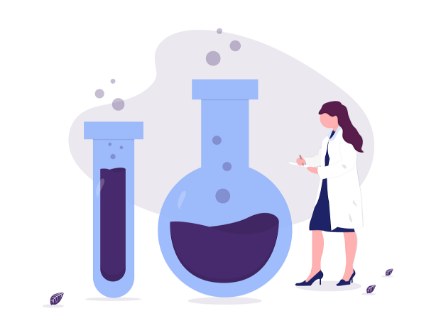

I was always aware of the challenges I would face as a woman in science, but I didn’t let them stop me. I have been accused of being selfish in the past because I chose to pursue a career rather than the traditional wife and mother path. I am lucky that my friends and family have always been supportive, it has been those outside of my personal network who have commented negatively. I am proud of the decisions I made, but I did experience loneliness as not many women were doing the same things as me. While there were downsides, it was also incredibly exciting to be a pioneer – I was the first female and non-national to lead a lab in my institution. Today, this is more balanced and we are 50/50 male to female.
Q: Why do you think there is a lack of gender balance in science?
A: We need to break old habits in order for change to happen, and that is both an internal and an external exercise. Externally, I think there is still bias when it comes to job selection, it is very difficult for women who want to have a career and be a mother (most careers require full time work), and there is still a difference in salaries between men and women. Internally, I think women can try to avoid conflict and play down their competitive edge due to fear of seeming aggressive or receiving criticism. I think we also have an internal guilt factor due to a historical choice we think we have to make between being a career woman and a ‘perfect’ mother who is there to pick the children up from school each day.
Q: How have you benefited from the EIT Health network as a female leader in health innovation?
A: The EIT Health network is fantastic, it is an example of an organisation that is really benefiting from gender diversity. To see so many talented and strong women in one place, and so many women on the board, it delivers a good message. I personally, as well as my team at Peptomyc, have been grateful for the support of EIT Health – they have shared our dream and helped to push us forward.
Q: What are you most proud of in your career and your life in general?
A: I have many proud moments – I am proud of the tenacity and determination we have shown and all of the hard work that has gone into proving our theory. Our first human trials of the Myc inhibitor will begin in January 2020, and I look forward to finding what impact our new treatment will have on patients with cancer. Our ultimate proud moment will be when we treat our first patients and we are making a difference in their lives.
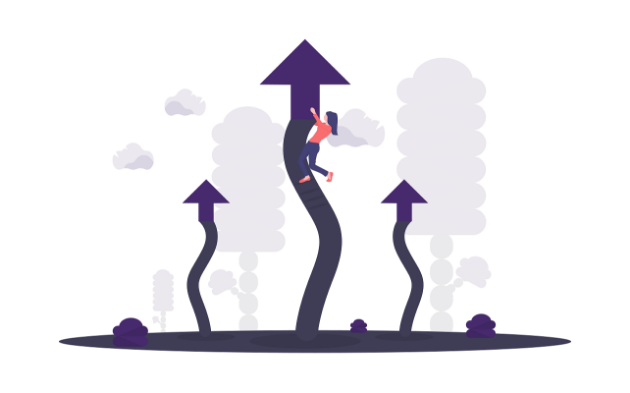
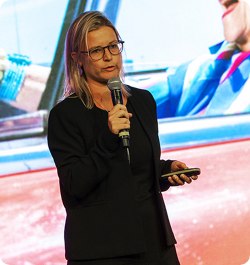
Bieke Van Gorp is Co-Founder and Chief Operating Officer of FibriCheck.
Their innovation is the world’s only medically certified app that can help prevent strokes by using a smartphone to detect heart rhythm disorders, including atrial fibrillation, a common cause of strokes. FibriCheck was awarded the 2018 EIT Venture Award and the 2017 EIT Health European Health Catapult award in the Digital category.
Q: How did you choose your career path and have you faced any challenges along the way as a woman?
A: I have a business background and I would call myself a digital entrepreneur – I have always had an entrepreneurial spirit. I found the health sector purely by chance when I met my business partner and CEO of FibriCheck, Lars Grieten, who has a medical background. We joined forces with Jo Van der Auwera and Kobe Leysen to become four and that is how I became involved in health. The health sector is great because you can truly make an important difference. For myself, and Lars, we both have personal experiences of atrial fibrillation affecting our families, and so being able to develop a technology that is saving people’s lives is an incredible feeling. I have heard a lot of stories about women being treated differently than men in the industry I work in, but I actually haven’t encountered much of this myself. I often will go to meetings where I am the only female, but to me that is irrelevant and it will not have an impact on how I behave or present myself.
Q: Why do you think there is a lack of gender balance in science?
A: I think the problem begins at school; you see a lot more males than females studying science and technology-based subjects, and so the gap is evident from an early stage. Also, women can sometimes be a little more afraid to take risks, which is the foundation of innovation. Venture capitalism is often a male-dominated world, and women have a different approach that is less blunt so investment matches can be hard to find.

Another challenge for women is in juggling their professional and private life. I have two children and I have to accept that I will miss some experiences at home while I am at work, but for me it is not a choice of one of the other – be a mother or have a career. It is a constant juggling act and this is OK. I feel that some women don’t understand me; they don’t understand why I would make the choice to not be at home all the time, but to me there is not one way of living your life, we are all different and we make the choices that work for us.
Q: How have you benefited from the EIT Health network as a female leader in health innovation?
A: EIT Health has been a hugely beneficial network for me and we found a lot of support with the development of our business model as well as funding. This enabled us to make our innovation a reality.
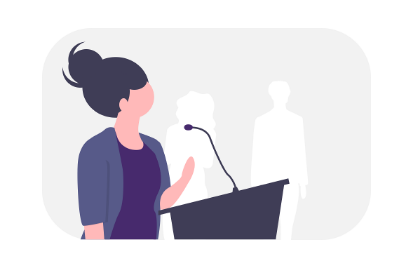
Q: What are you most proud of in your career and your life in general?
A: I am very proud that we are pioneers in our field – we have the first app ever to detect and monitor atrial fibrillation through your smartphone. The work that our incredible team has done has truly changed, and saved, the lives of countless people.
Watch Bieke Van Gorp’s Video interview for the 2018 EIT Award
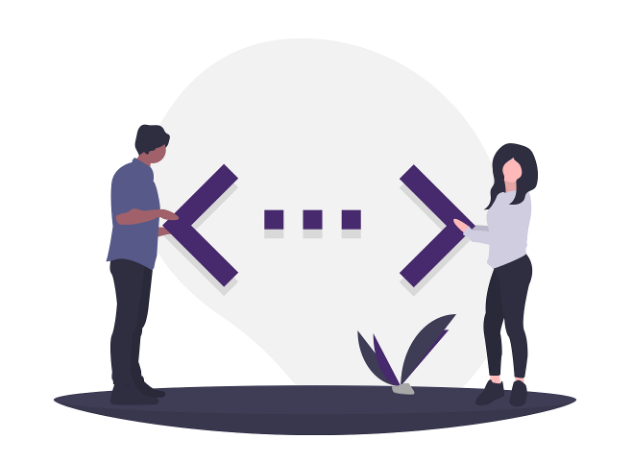
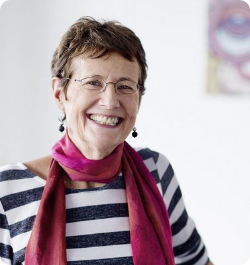
Ursula Redeker is a member of the EIT Health Supervisory Board and Spokeswoman for the Management of Roche Diagnostics GmbH.
She holds a doctorate in chemistry (Dr. rer. Nat.), and worked as a research associate at Plantorgan KG in Germany from 1986 to 1990. In 1994 she joined F. Hoffmann-La Roche Ltd. in Basel, Switzerland, and since then has held various management functions with increasing responsibility.
Since 2014, Ursula Redeker has been the spokeswoman for the management board of Roche Diagnostics GmbH, responsible for both Mannheim and Penzberg sites, and also managing director of Roche Deutschland Holding GmbH. She is also a member of the EIT Health Supervisory Board, a member of the Board of Trustees of the German Cancer Research Center (DKFZ) in Heidelberg, Chair of the Scientific Advisory Board of the Rhine-Neckar Metropolitan Region and shareholder representative on the Supervisory Board of ABB AG.
Q: What were your aspirations as a young girl and what attracted you to work in health?
A: I was always fascinated by science and more specifically life sciences. Understanding the principles of life and applying these to improve health had a big appeal to me. I attended a girls’ school and I was inspired by my former teachers, strong women who went to university when this still was a rare privilege for women. Chemistry was one of my favourite subjects at school and so I went on to study it. In my first job after my PhD I worked on the chemical synthesis of insulin which – at the time – was still extracted from pig pancreas. After that rewarding experience, I knew that with my chemical background, I could help develop new treatments to help patients.
Q: How did you choose your career path and have you faced any challenges along the way as a woman?
A: I always felt inspired by the spirit of research, and contributing to the development of new treatments to improve people’s lives is very rewarding. Therefore, working in research and development in health companies was almost a natural choice. For quite some time I was the only woman in the teams I worked with and that was somehow challenging – for both sides.

I think there are differences in how we communicate and work together. We women contribute and position ideas differently, discuss and challenge them differently. Being a minority creates an extra challenge to be heard, to be listened to and to get suggestions accepted. When working in a gender balanced team, at first I was surprised how impactful our different styles of communications were and what a difference it made.
Q: Why do you think there is still a lack of gender balance in science? What support do they need in order to be encouraged to pursue careers in the industry?
A: I believe that many factors contribute to the fact that more men go into science and pursue successful careers there – remaining gender clichés, missing female role models or also own inclinations. It is important to make it clear to young girls very early on that they can choose their own path. Whether astronaut or veterinarian, mathematician or author – girls should be able to follow all their dreams for their professional life. And if there is a lack of role models and / or encouragement: still just go for it! It is you that other girls will, one day, look up to as a role model. Paving a path takes courage, but it is fun and undoubtedly rewarding. You will quickly realise that there is more support around than you anticipated. When it comes to science, I’m convinced we need more women. Moreover, I believe that all sectors benefit from diverse teams and also from more female leaders. The right mix of teams with diverse background is key to success.
Q: Why are networks such as EIT Health important for women in health innovation?
A: Nowadays, all doors are formally open to women. But still more men go into scientific research and development. We know diversity is an important success factor – diversity creates innovation. Strong networks, such as EIT Health, are needed to bring together people with a spirit of collaboration for a common purpose. It is an environment where diversity is appreciated, and where women can flourish.
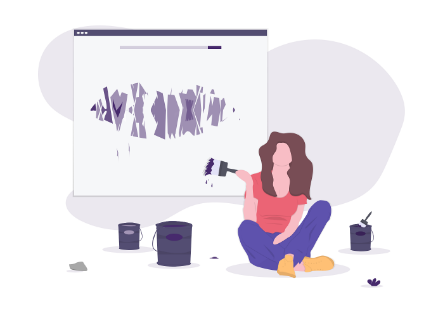
Q: What are you most proud of?
A: I always remained true to myself and I pursued what I felt was right. There was the need to sometimes “swim against the current” and do things differently – this was not always easy, but in the end, it was an essential part of being successful. I also always voiced my conviction to ensure equal rights and opportunities, only by each of us doing this can we achieve diversity. Diversity should be celebrated – all people are different, and that’s a good thing.
